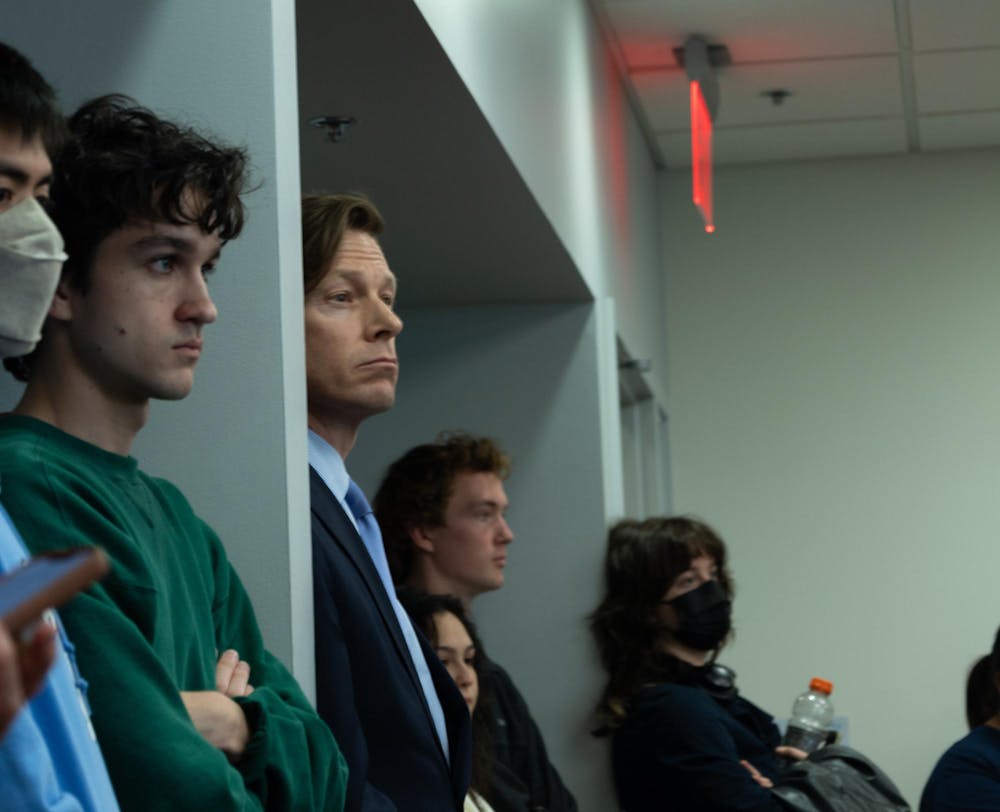UNC’s interim Chancellor Lee Roberts made an impromptu appearance at the TransparUNCy Teach-In: Part 2 event in the Student Union on Thursday evening.
The teach-in was planned to discuss the past, present and future actions of powerful stakeholders in North Carolina who control higher education in the state, such as the Board of Trustees and Board of Governors. Hosted by the Affirmative Action Coalition, the goal of the event was to educate the greater campus community on these leaders and advocate against their involvement, according to Heel Life.
Roberts told the audience he contacted Toby Posel, co-founder of TransparUNCy and presenter at the teach-in, earlier on Thursday to ask if he could attend the event.
During a time designated for students to ask questions and have conversations with the TransparUNCy leadership and presenters, Roberts was asked by a few audience members in particular to speak to the crowd of about 100 community members. He spoke about his relationship with UNC System BOG member James Arthur “Art” Pope and anti-diversity, equity and inclusion legislation that could potentially impact UNC.
In response to a discussion about his connection to Pope, who is the CEO and chair of Variety Wholesalers, Inc. and a conservative donor, Roberts said he serves on the corporate board of the private retail company and is paid $10,000 a year. However, Roberts said they agreed he would not be paid while serving as interim chancellor.
The slideshow presented at the event called Pope the “most powerful man in North Carolina" based on his experience in state government and local relationships.
“Art Pope has a lot of ideas — so do a lot of other people,” Roberts said. “He cares a lot about Carolina — so do a lot of other people. He doesn’t always get his way — I don’t think that anybody does.”
After being asked by an audience member if the protection of marginalized people and those with histories of oppression are nonpartisan issues, Roberts said that diversity is a nonpartisan issue.
“It’s the state’s University. It needs to look like the state,” Roberts said. “Especially as the state continues to change and diversify.”




